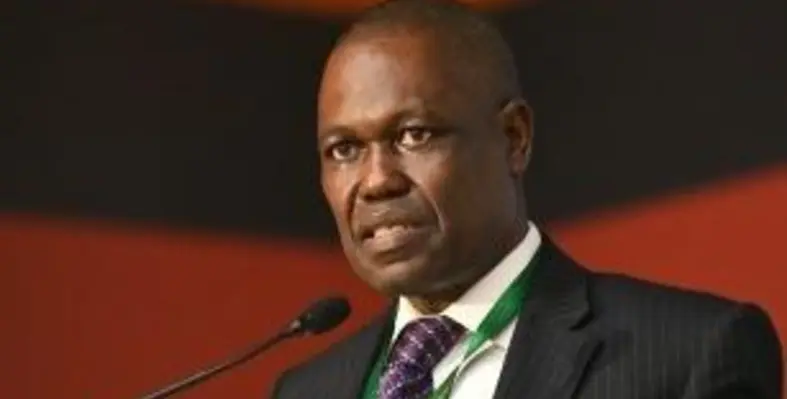Page 2 of 4AR: Comments are often made about Ecobank’s exposure to systemic risk given the bank’s pan-African presence. Do you have a view on this?
AA: Well when you say we have exposure to systemic risk, whether because we are systemically an important bank in some of the countries where we are present. Yes, that is true but it’s not that we have exposure to systemic risk, it’s that sometimes because we are present in a large number of places and this creates a systemic risk in terms having an impact on the economy of other countries.
We’ve tried to run this organisation with the best of governance and with the best standards making sure we follow the best practices of how a multi-national institution should be run. That limits the consequences of the firm creating risk on the environment. But we need to then look at what the firm can do because of our presence in multiple countries across Africa. We are in a position to facilitate trade, we are in a position to facilitate payments that allow those things to happen pretty quickly rather than they way they could have happened before.
From our point of view, we are not just focusing on challenges alone but we are also focusing on the opportunities that our pan-African presence enables to happen in terms of people being able to make payments across Africa and trade with their neighbours. We can facilitate that because of our multiple presence in many countries.
AR: Ecobank took US$800mn impairment charge in 2016. The received wisdom was that this was necessary due to the NPLs and the Nigerian operations, which is your largest market. Do you agree? Given that the Nigerian economy is still exhibiting very slow growth, what is your strategy going forward?
AA: Well it’s in our numbers, I mean the whole of it is not Nigeria but what the component that is Nigeria are in the numbers we publish for 2016. We’ve dealt substantially with the issues. Yes, the economy of Nigeria is still exhibiting slow growth but it is not in recession in terms of contraction as it was before. Before 2016 there was actually no liquidity in the system because people couldn’t get foreign currency to be able to transact and that has subsided substantially this year.
So we think that what we have done to reposition the franchise, is done. We still have some level of impairments, which we are dealing with through 2017. We don’t think we will need to take that level of impairment again, we have signalled to the market that that was a big one-off. But we are working with our clients to continue to make sure that they can continue to honour their obligation. Nigeria is a big market for us but our strategy is to do more cash management, more transaction services, more trade; rather than big lending given that there is low capital formation happening in the countries.
Our strategy, if you look at payment proposition to companies, to commercial enterprises, if you look at our trade proposition, our payment proposition to individuals, the launch of our Ecobank Mobile app, that allows instant payments across all of our networks. These are things that allow us to have a commanding height of payments both at the individual level and at the corporate level.
AR: You are on record saying that Ecobank would like to achieve 100 million customers by 2020. The digital offering is a key part of this. Could you please give us an update on progress?
AA: Yes, it’s an ambitious target we have stated. We know it’s audacious. But we believe that once we create the right strategy and product, we will be able to take the product quickly to the market place.
We’ve got approvals from regulators across Africa, 25 of them, that people can open an account with us digitally. We are one of the only entities that you can open an account digitally end to end. We have applications that are now in place that people can actually use the credit or debit card of other banks and transact with us that way. That allows the people that are not only our customers to be able to transact, other people can also transact.
We can also use that for the purpose of remittances across the places where there are Africans living, in those countries where people want to send remittances home. So those assets have now been put in place and our view is that those assets are attracting customers.
So once we get to a critical mass then we believe that we will reach a point of excellence, so to speak. So we have created the assets now and we are putting those assets into place. Once we get to that critical mass, we think that we will be able to get to a take-off point. Once we cross that take-off point then the race to 100 million becomes easy.
Now we are not going to get there by ourselves. We are working with a lot of partners whether Visa, MasterCard, Microsoft; many important partners. Some fintech companies are partnering with us as well, and we are working with a lot of distributors so we feel very comfortable that this is do-able.












